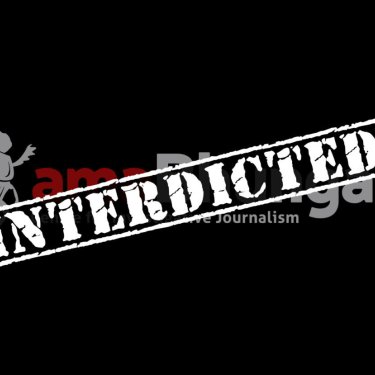South African court must overturn gag on media outlet’s coverage of business group

Reporters Without Borders (RSF) calls on the Johannesburg high court to overturn the entirety of the gag order it issued preventing South African investigative media outlet amaBhungane from publishing any further articles based on a leak of documents from within the Moti Group, a South Africa business conglomerate.
In a letter dated 12 April, the Moti Group accused amaBhungane of using stolen documents as the basis of damaging articles about conflicts of interest in the company’s relations with President Emmerson Mnangagwa’s government in Zimbabwe and the methods it has used to promote its Zimbabwean mining operations. AmaBhungane denies that the documents were obtained illegally.
In response to a secret application by the Moti Group, a Johannesburg high court judge issued a ruling on 1 June ordering amaBhungane to return the documents and banning it from publishing any further articles in its #MotiFiles series. After amaBhungane appealed, another Johannesburg high court judge ruled on 3 June that the media did not have to return the documents. But the publication ban remains in effect.
The high court must quash the entire initial ruling restricting the work of amaBhungane’s journalists and compromising the confidentiality of their sources. We are outraged by the injustice suffered by this public interest investigative media outlet, whose seriousness and professionalism are undeniable. The courts must respect editorial freedom and the freedom to reveal information in the public interest.
According to amaBhungane, the judge who issued the second ruling said it was “inexplicable" that the court had ordered the return of the documents. A follow-up application by amaBhungane, seeking the quashing of the publication ban, is expected to be heard in the coming weeks.
The Moti Group has so far not brought any defamation suit against amaBhungane or referred its articles to South Africa’s press ombudsman. Instead, it has waged a huge publication relations campaign by means of TikTok videos and paid articles designed to repair its image and smear amaBhungane.
Zunaid Moti, the Moti Group’s CEO until his resignation last March, said in a press release on 4 June that the company’s dispute with amaBhungane was about “preventing journalists from reporting upon stolen information,” not “gagging” the media. Dondo Mogajane, the new CEO, accused amaBhungane of publishing a series of “highly distorted, inaccurate and defamatory reports.”
AmaBhungane has repeatedly demonstrated its competence as an investigative media outlet in South Africa and its journalists played a leading role in the 2017 “Gupta Leaks” exposé of large scale corruption within former President Jacob Zuma’s administration and among Zuma associates, which was based on more than 200,000 documents found on a decommissioned corporate server.
South Africa is ranked 25th out of 180 countries in RSF's 2023 World Press Freedom Index.
- Africa
- South Africa
- Legal framework and justice system
- Technological censorship and surveillance
- Independence and pluralism
- News
- Litigation and legal initiatives
- Press freedom
- Freedom of opinion and expression
- Right to news and information
- Confidentiality of sources
- Corruption
- Society
- Threats and pressure
- Judicial harassment
